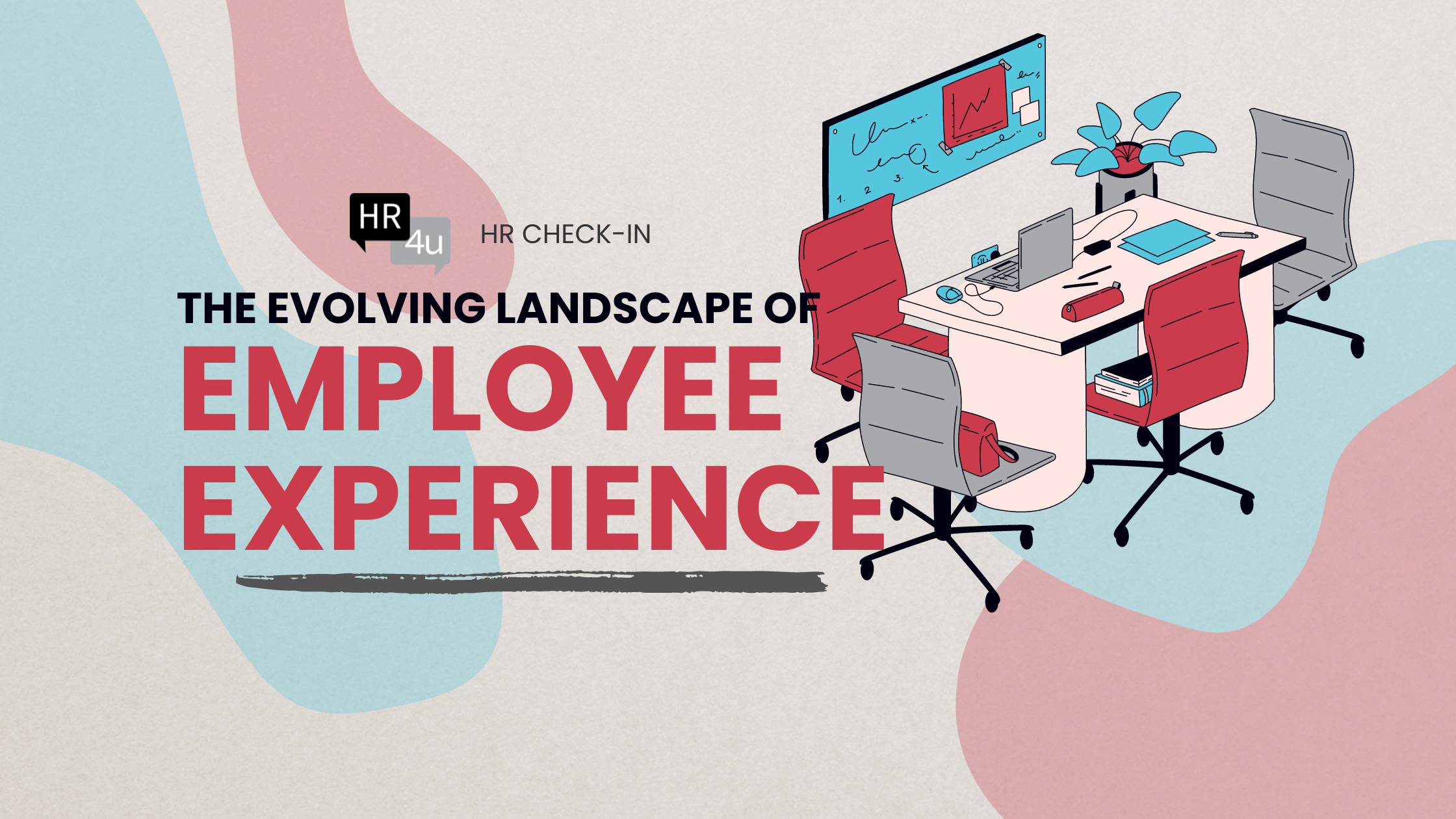In today’s fast-paced business world, the concept of employee experience (EX) has become more than just a buzzword; it’s a crucial aspect of attracting and retaining top talent. For HR and employers alike, navigating the evolving landscape of EX requires a keen understanding of both local regulations and global trends. In today’s edition of HR Check-In, we’ll explore how the EX landscape is changing and provide practical strategies for employers to enhance their employee experience.
First, let’s break it down – What is the “Employee Experience?”
Employee Experience (EX) refers to the sum of all interactions, perceptions, and feelings that an employee has throughout their journey with an organization. It encompasses every touchpoint an employee encounters, from the recruitment process to onboarding, day-to-day work experience, career development, and offboarding.
It includes the physical work environment, company culture, relationships with colleagues and managers, access to resources and tools, opportunities for growth and development, and the overall sense of purpose and fulfillment derived from work.
Investing in employee experience is essential for attracting and retaining top talent, driving engagement and productivity, fostering a positive organizational culture, and ultimately achieving business success. Organizations that prioritize employee experience create environments where employees are motivated, empowered, and inspired to perform at their best.
The keys to a positive employee experience:
Remote Work Revolution:
The COVID-19 pandemic has accelerated the shift towards remote work, transforming the traditional office environment. In Ontario, where many businesses have adopted remote or hybrid work models, employers must prioritize creating a seamless remote work experience for their employees. This includes providing the necessary technology infrastructure, fostering virtual collaboration, and promoting work-life balance.
Flexibility and Work-Life Integration:
Employees today value flexibility more than ever before. Whether it’s flexible working hours, compressed workweeks, or unlimited vacation policies, employers in Ontario need to adapt to the changing needs of their workforce. Embracing flexibility not only enhances employee satisfaction but also contributes to productivity and retention.
Wellness and Mental Health Support:
The pandemic has underscored the importance of prioritizing employee wellness and mental health. Employers in Ontario should invest in comprehensive wellness programs, provide access to mental health resources, and create a supportive work culture that encourages open dialogue about mental health issues. Initiatives such as Employee Assistance Programs (EAPs) and mental health days can make a significant difference in employees’ lives.
Diversity, Equity, and Inclusion (DEI):
Ontario is a diverse province, and fostering an inclusive workplace is essential for driving innovation and creativity. Employers must actively promote diversity, equity, and inclusion by implementing inclusive hiring practices, offering diversity training, and creating a culture of belonging where every employee feels valued and respected.
Career Development and Growth Opportunities:
Employees are increasingly looking for opportunities to learn, grow, and advance in their careers. Employers should invest in professional development programs, mentorship initiatives, and career pathing to support employee growth and retention. Providing meaningful feedback and recognition also plays a crucial role in motivating employees to excel.
Digital Transformation and Employee
Experience Platforms: As technology continues to reshape the workplace, employers can leverage digital tools to enhance the employee experience. Employee experience platforms (EXPs) offer a centralized hub for communication, collaboration, and recognition, fostering a sense of belonging and engagement among remote and distributed teams.
Compliance with Employment Standards:
Finally, employers in Ontario must ensure compliance with local employment standards and regulations to maintain a positive employee experience. This includes adhering to laws related to minimum wage, hours of work, overtime pay, and occupational health and safety.
The landscape of Employee Experience (EX) is evolving rapidly, presenting both challenges and opportunities for employers in Ontario. By prioritizing remote work flexibility, wellness support, diversity and inclusion, career development, digital transformation, and compliance with employment standards, employers can create a workplace where employees feel valued, engaged, and empowered to thrive. Ultimately, investing in the employee experience is not only the right thing to do ethically but also a strategic imperative for driving business success in today’s competitive market.


